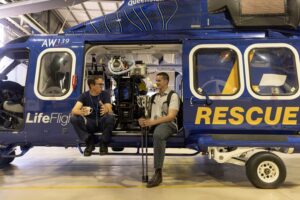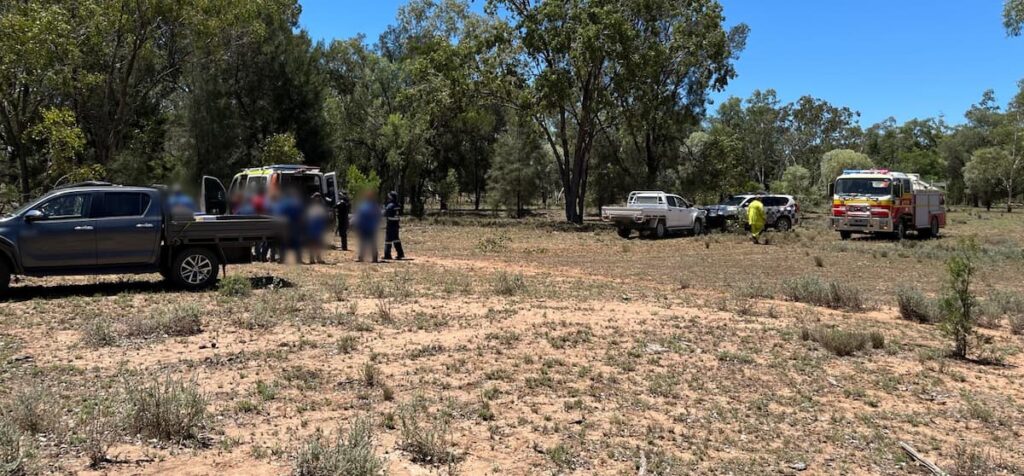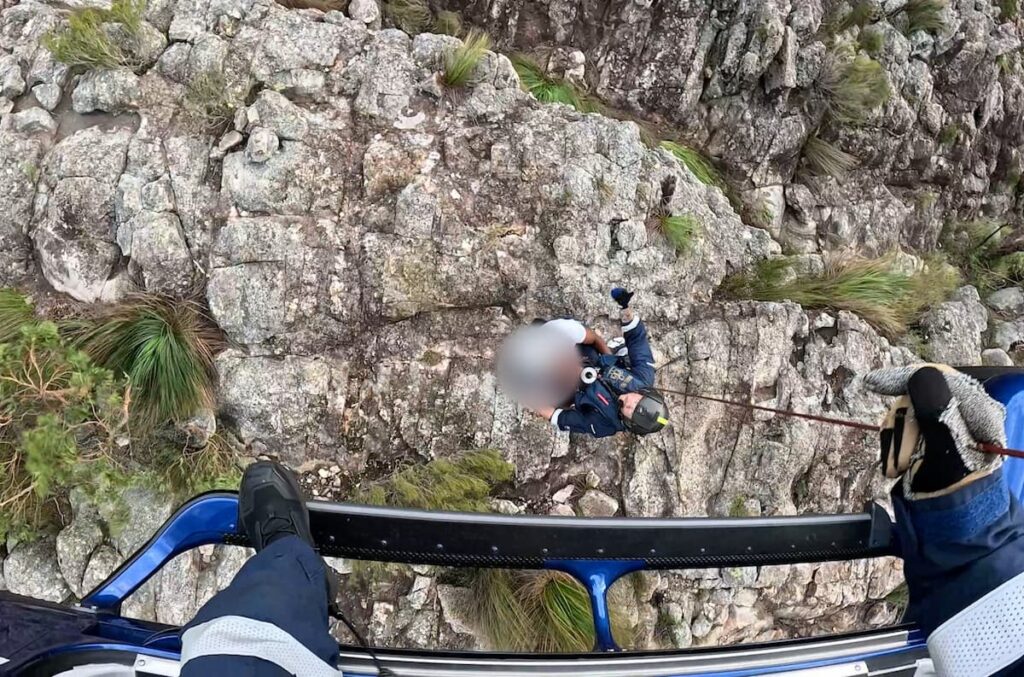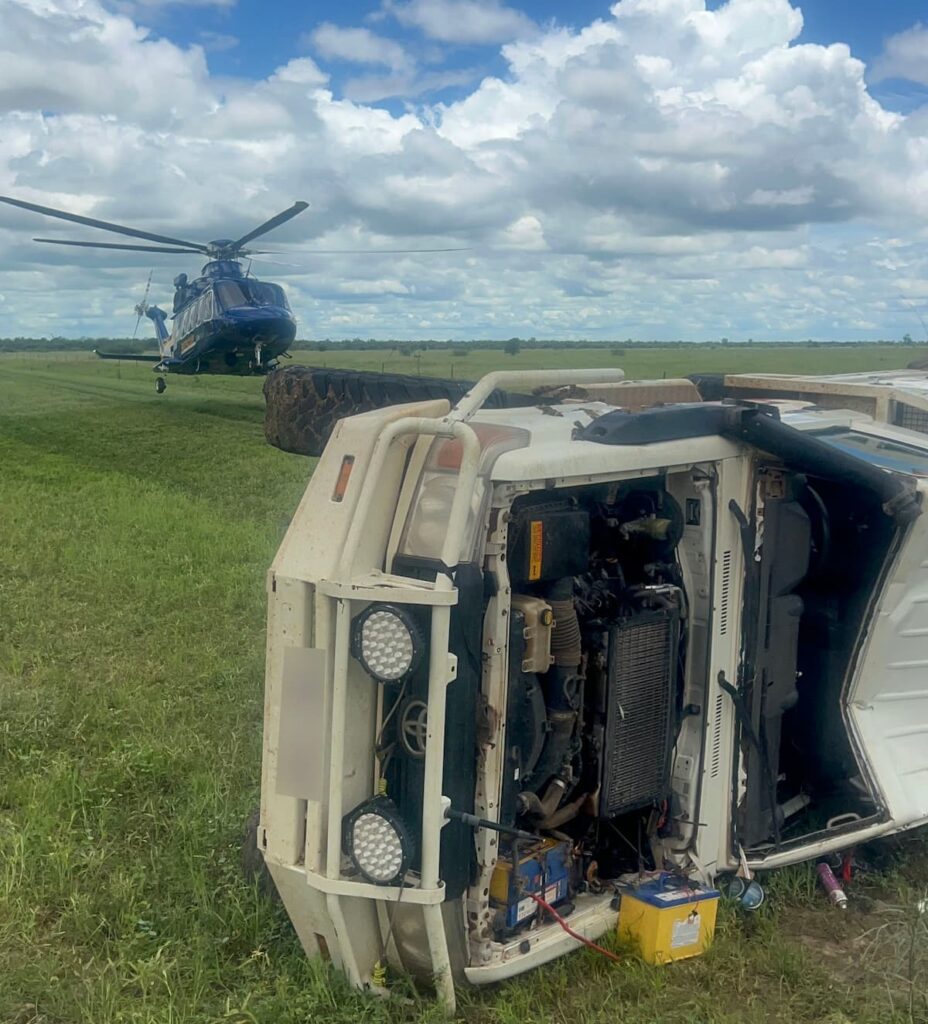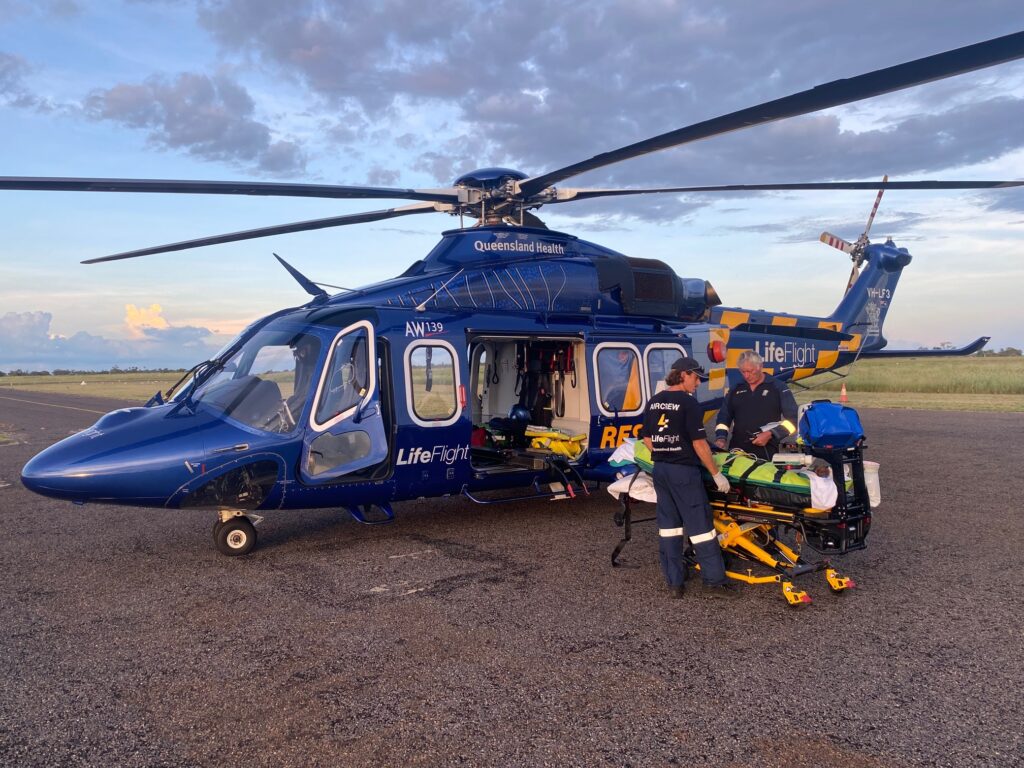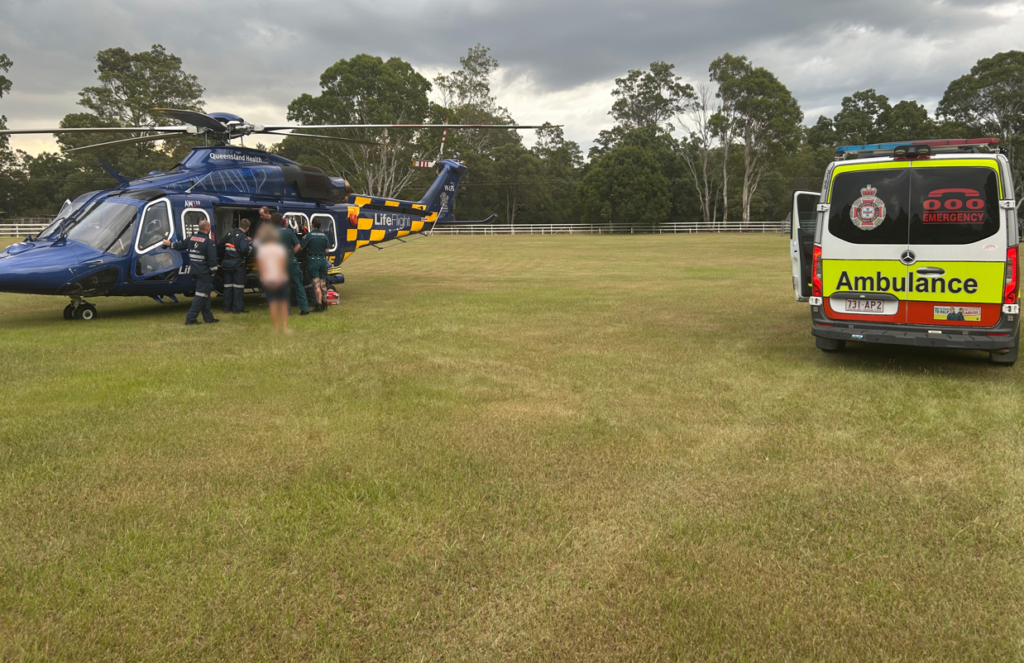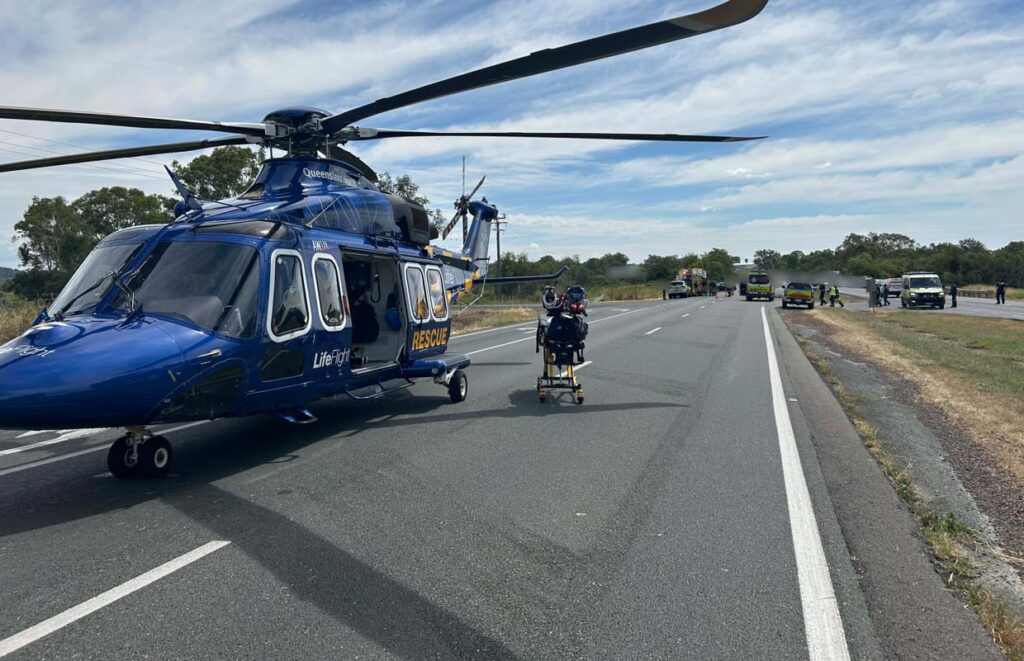Dozens of Toowoomba and Brisbane medical professionals kept Zach Nightingale alive, but it was the quick thinking of the first two people by his side that saved him.
Zach’s right leg was amputated when he came off a motorcycle on 16 December 2017. Severely wounded, many of his internal organs were exposed and he lost litres of blood.
Banking executives April Cavanagh and John Debenham were driving and saw the devastating accident.
The pair had just travelled more than 1,000 kilometres and were 15 kilometres from home. April was working on her laptop, but something made her look up.
She saw the moment Zach’s leg smashed into a moving vehicle.
“It was like a bomb going off,” April said. “Zach shot up into the air, his body hit with such force that parts of him landed several metres away. The motorcycle shattered into pieces.”
She dialed Triple Zero (000) and in the minute it took April and John to run from their car, the bitumen was already covered in Zach’s blood. He was in the middle of the road drifting in and out of consciousness.
They knew they needed to stop the bleeding. April took instructions from a Triple Zero (000) operator while John was on the phone to his nurse wife. Zach listened to the conversations of strangers saving his life.
“My wife was so reassuring,” John said.
“She told me to try and stop the bleeding, to comfort him and let him know help was on the way. A car pulled up behind them and gave them a blanket that John wrapped around Zach’s injury.”
The Queensland Ambulance Service (QAS) operator spoke calmly and slowly to April: “Press down firmly and do not lift it up to look, okay?” A woman dropped towels beside April. “If it starts to come through that picnic blanket, just put those towels on it. Remember a firm, steady pressure.”
A few minutes later, QAS LifeFlight flight paramedic Ben Lawson and his LifeFlight critical care doctor colleague Sarah Collins were on scene, after being tasked by Retrieval Services Queensland, shocked at the “river of blood running down the road”. In his 18 years of responding to road trauma accidents, Ben said what first responders did for Zach saved him.
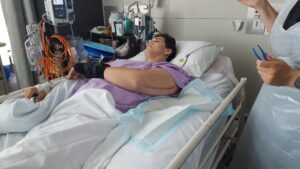
Uncontrolled bleeding is the most common cause of death in trauma patients.
“The bystanders did a very good job before we got there,” Ben said.
“They knew about compressing really serious bleeding wounds. It’s unlikely Zach would have survived without that intervention.”
In the 12 minutes they were at the scene, Doctor Collins put pressure on Zach’s wound, Ben worked on his airway and ground paramedics put in two cannulas to transfuse life-saving blood.
Around 10 minutes later he was in the Toowoomba Hospital emergency room receiving a massive blood transfusion. He was critically ill, with life-threatening injuries.
Toowoomba Hospital emergency doctor Alistair Hamilton said a quick call from Ben at the scene, ensured the hospital team was ready to activate its trauma response process.
“Our surgical team did an amazing job with Zach,” Doctor Hamilton said.
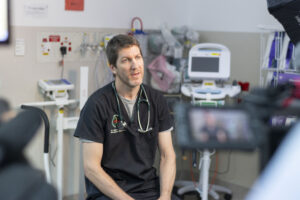
The LifeFlight aeromedical team wheeled Zach straight from theatre to the LifeFlight helicopter that flew him to Brisbane where he stayed for about 100 days and had 17 more surgeries.
“The level of trauma that Zach suffered is extremely rare,” Doctor Hamilton said. “It’s absolutely incredible that he’s alive today.
“And that’s testament to the amazing care he received from the time of injury and at the scene, through that pre-hospital period of care and then the hospital’s involvement in his ongoing care and treatment. Everyone involved should be applauded on their efforts in keeping Zach alive.”
Ben and his LifeFlight colleague aircrew officer Eddie Balarezo recently reunited with Zach at the Toowoomba LifeFlight base – almost eight years since the accident.
Reflecting on the number of people who helped to save him highlighted for Zach how crucial those first actions in the first few minutes after his accident were.
Zach is now 29 and works in an administration role at the Toowoomba Hospital, is a Queensland Health amputee volunteer and motivational speaker, a LifeFlight patient ambassador, a Queensland Road Safety Week ambassador and more recently has started his own public speaking business.
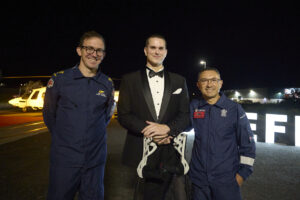
He’s eager to help raise awareness about the importance of knowing what to do in a medical emergency before help arrives and has booked into a Toowoomba First Minutes Matter course in September.
“I’m super grateful to my first responders,” Zach said. “Obviously, I wouldn’t be here without their quick thinking. I’m very grateful they pulled it together all as one group.
“I think it’s a pretty crucial skill that everyone should know some emergency medical training. You’ve got no idea what you’ll come across in your day-to-day life. So, you might be the reason why someone actually survives if they ever suffer some type of traumatic incident.
“It could be anyone that you help. It could be a family member. It could be a partner. It could be a stranger, just like those people who dealt with me on that day. Having these skills in your toolbox are such a crucial thing to have.”
LifeFlight Senior Medical Educator Leah Harrison has worked with critical care doctors to develop the First Minutes Matter program and delivers the free emergency trauma training workshop with other experienced emergency medicine educators to community halls and farms and workplaces all over Queensland.
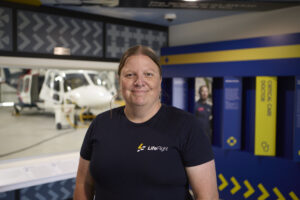
“We know that in a major trauma, bleeding is the most common cause of death,” she said.
“A lot of times this can be controlled by bystanders, so a major bleed can be life threatening within a couple of minutes. So, every second or every minute really does count. I think not knowing what to do in these situations is probably one of the worst things that people will every experience. That’s why having these emergency skills is so important, so people don’t get left feeling like that.
“Zach’s a prime example of how first responders can save a life. He had extensive bleeding from his wounds and if somebody hadn’t have had that courage and also that knowledge to just go: ‘I need to step in and I need to stop this’ then possibly he wouldn’t be here today.”
